Activist George Abraham said although a 2011 census reported 5.32 million visually-impaired people in India, activists would say the number is closer to 40 million at a talk on Monday, April 16 at the University of Connecticut.
“I’ve yet to meet a blind person in India, including myself, who has been counted in the census… 5.32 does not include the blind people I know, and that’s a fairly large number,” Abraham said.
Invited by the India Studies Program, the Asian and Asian American Studies Institute & The Human Rights Institute, Abraham came to Storrs campus to talk about his experience as an activist and advocate for Indians who are blind and/or visually impaired.
Abraham shared many of his achievements in his endeavors to work for the rights of the blind in India.
He established competitive blind cricket, describing the bat-and-ball game as the number one passion in the country. After seeing a game played with all blind players, he decided to work on making it an established competition.
With this as inspiration, he organized the first World Cricket competition in New Delhi, India in 1990. Later, he became the founding chairman of the World Blind Cricket Council.
Abraham said he started this blind cricket project with a national tournament. It turned out to be a success, he said, with 19 teams, over 400 blind competitors and the tournament lasting eight days.
“We promoted the game as a sponsored event. We looked at corporate sponsorship simply because I believe that sponsorship recognizes the ability while charity and donations actually is triggered or prompted by the disability. What cricket was for the blind was to shift the focus from the disability to the ability,” Abraham said.
He also founded Project Eyeway, a campaign dedicated to sharing knowledge and information on life with blindness.
“What I realized was the real problem was not the blindness. It was the mindset. And the mindset is based on what you know, the exposure you have, so I just found it important to make information available so whoever needs the information can use it and give opportunities to whether it’s a blind person or family,” Abraham said.
The project aims to “inform, inspire and empower all people with visual impairment and to realize equal rights, responsibilities and opportunities with visual impairment,” according to a Daily Digest post.
Project Eyeway began as a website, but according to Abraham, did not see real success until it was launched as a radio program where information was shared and calls were taken to answer questions and discuss options for the blind and visually impaired.
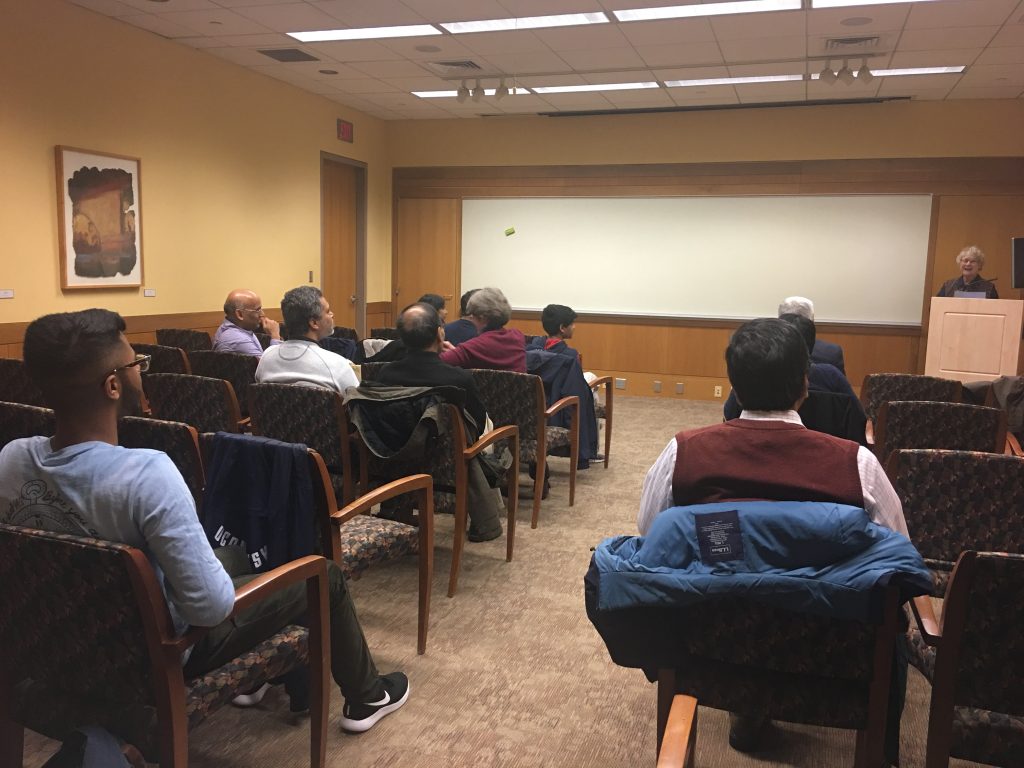
Elizabeth “Betty” Hanson, the director of the India Studies Program, introduced Abraham at the beginning of the event. Photo: Daniela Doncel
The project grew further as a helpline where people could call for information, resources and ask for help in situations of discrimination.
Abraham said it was important to him to have this helpline be operated by the visually impaired in order to have a personal connection over the phone.
The project expanded when multiple networks were set up across India, so those calling could find solutions near their area in the country.
His activism began when his wife wanted to learn braille to transcribe books. He and his wife went to a school for the blind for the first time and saw the terrible conditions it was in, including run-down buildings, a poor curriculum and a lack of passion from the faculty.
“I had meningitis as a kid and I lost my sight very early. My optic nerves were damaged, my retina was damaged. In my years at school, I had to hold books very close to my nose and still not read very much. It was my parents who helped me out, my peers, my classmates, my friends. We did a lot of combined studies. I cleared my masters from Delhi University, St. Stephen’s College, so when I saw this blind school, I just told my wife that I think I need to do something with people like me,” Abraham said.
The director of the India Studies Program at UConn, Elizabeth “Betty” Hanson, said those in the India Studies Program like to emphasize non-governmental organizations working on activism-related causes.
Hanson said she hopes people walk away with a different perspective on the blind and visually impaired.
“Well, I hope that [students] will have a different view about the blind and take his message about how, really, investing in the blind and treating them equally. I know that’s what his message is and I hope that’s the message they take away,” Hanson said.
Freshman and applied math computer science major Jonathan Williams said he attended the event in order to touch base and reconnect with his Indian community and heritage.
“I just think it’s important,” Williams said, “for us humans to connect with our culture and heritage. For me being Indian, I think it’s important for me to understand and see how I can help those who are suffering especially coming from a place of privilege…”
Abraham said work still needs to be done for the blind and visually impaired in India, focusing on four major aspects: the expectations from visually impaired people need to be present; we need to empathize rather than sympathize; environments need to be accessible and the education system needs to bring in the idea of business and enterprise to create more employment options.
“Change will happen only when the thinking changes,” Abraham said.


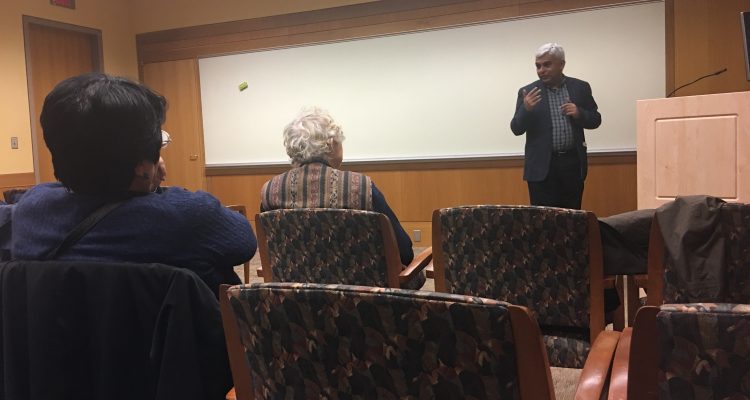
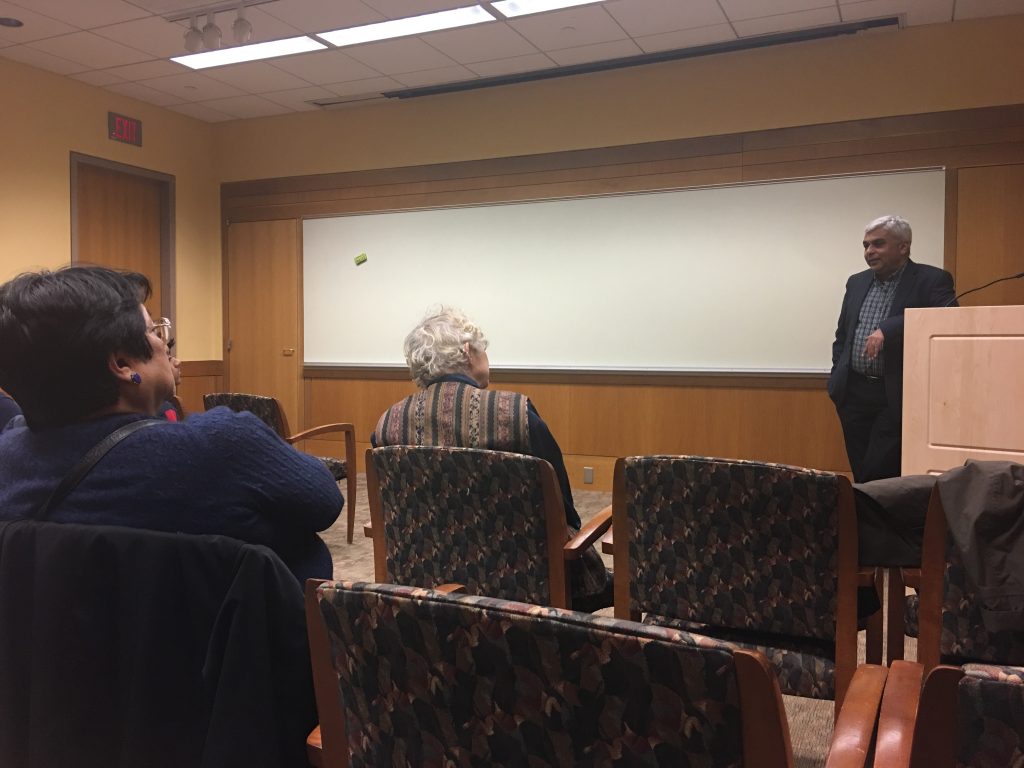
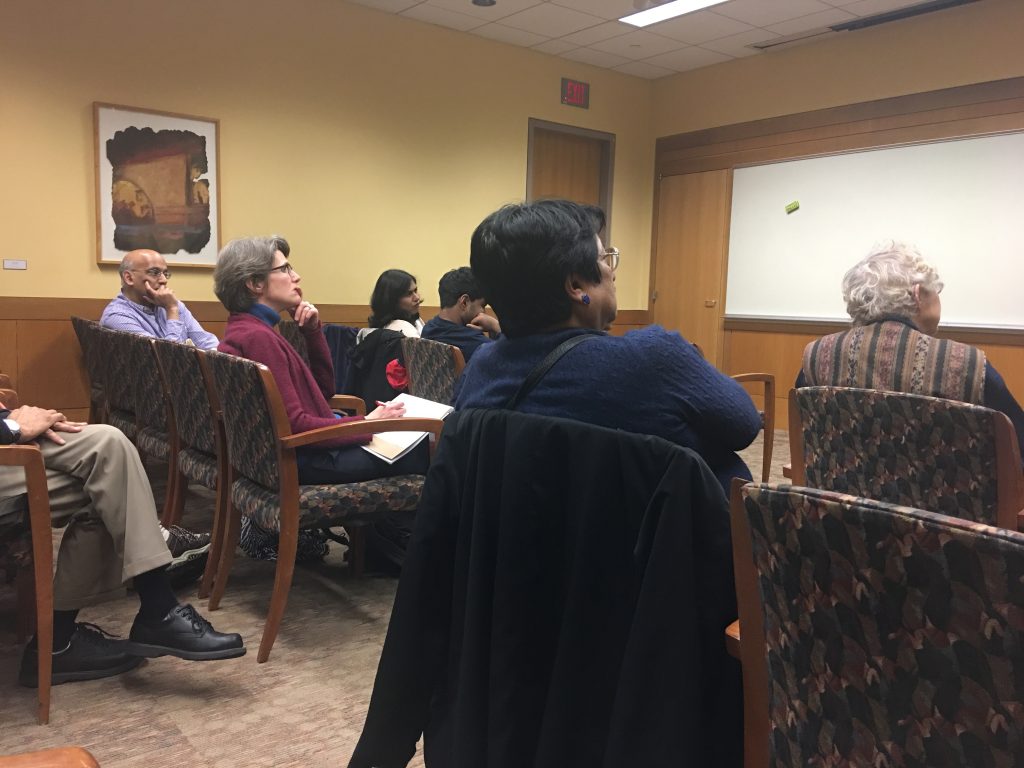
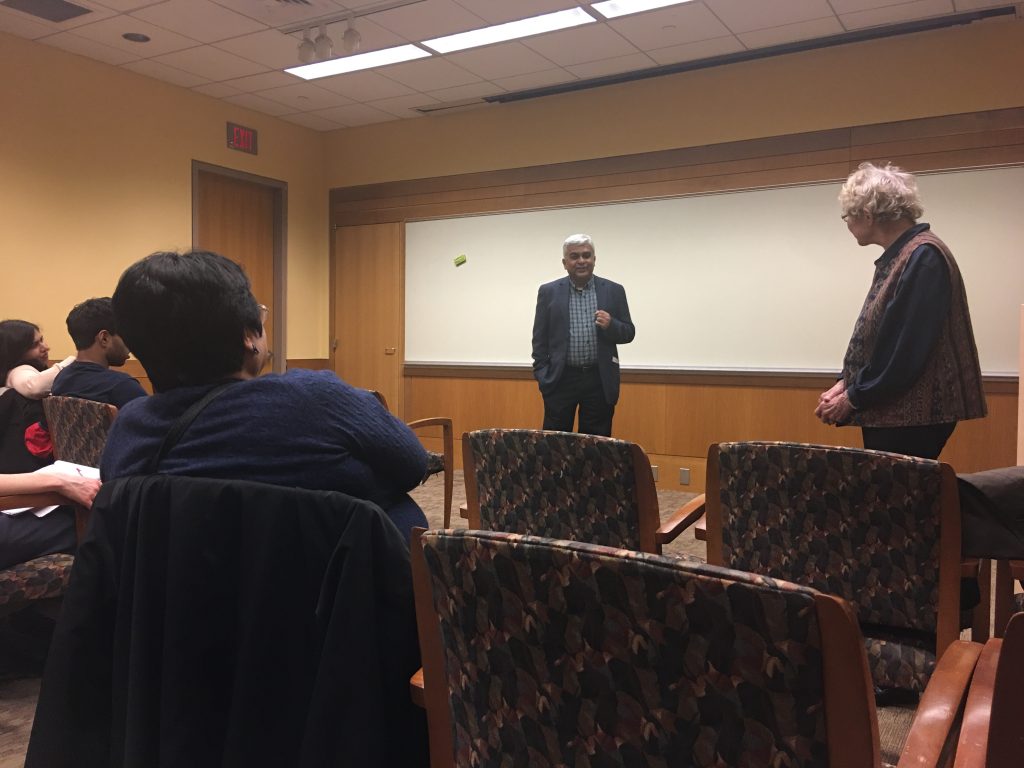
I’ve had the privilege of meeting and being associated with George Abraham. From the moment I met him, I knew that no matter what life throws at you, you can make something beautiful out if it, if you have the will to do it. I didn’t know George was blind when I met him, all I knew about him was that he was doing great work to help blind people, so you can imagine the emotions that went through me when I shook hands with this man. He had come a great distance to meet me, found his way into my office building, asked for me and waited in the lounge. No stick in hand and in the hot summer, the glasses would never have had anyone suspect. I admire George for not just overcoming his disability if you can call it that, but the generosity of his heart and mind to reach out to thousands of visually impaired people in this country who may never have known opportunities were available and his tireless efforts to make things happen for them.